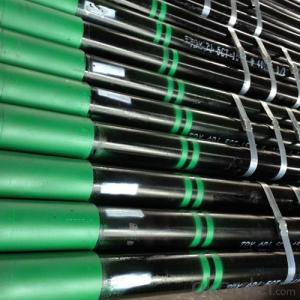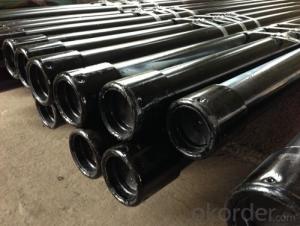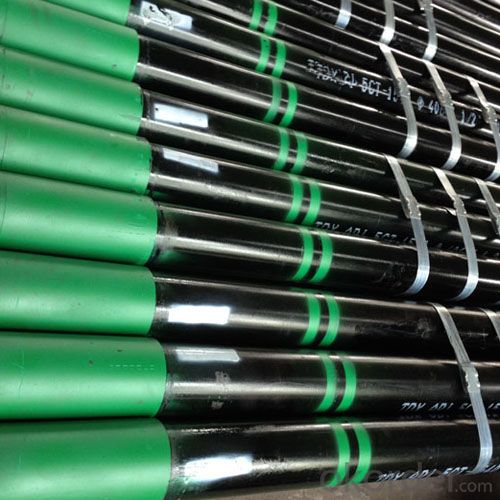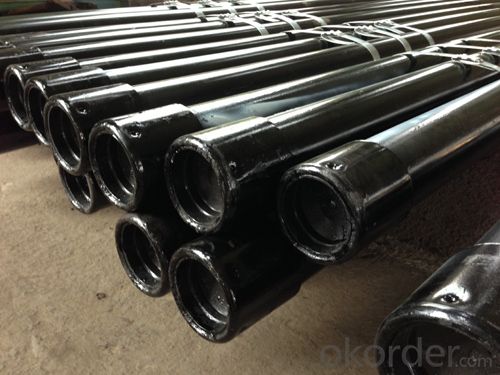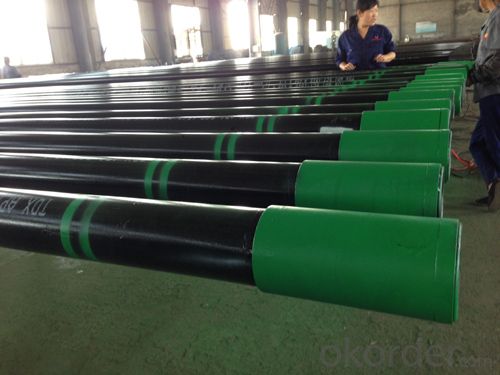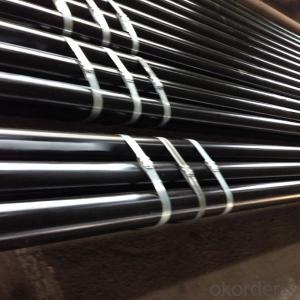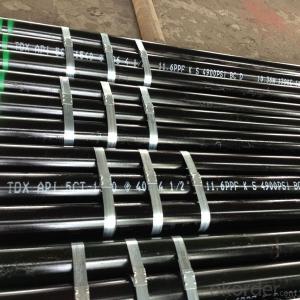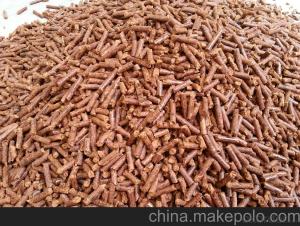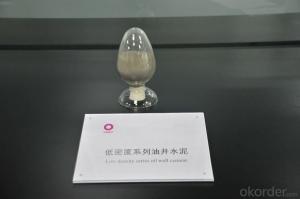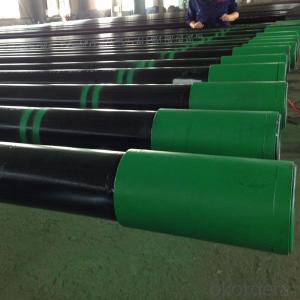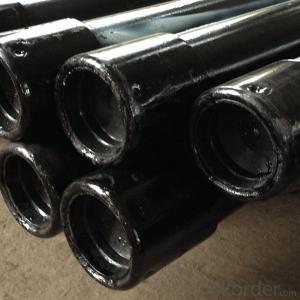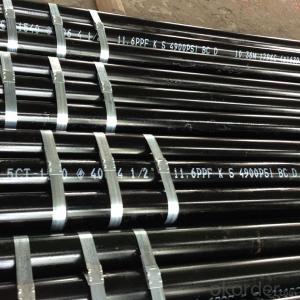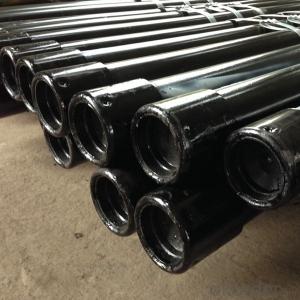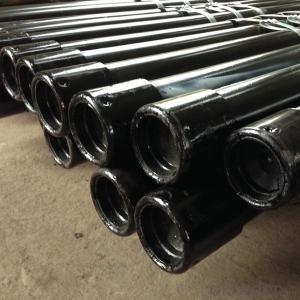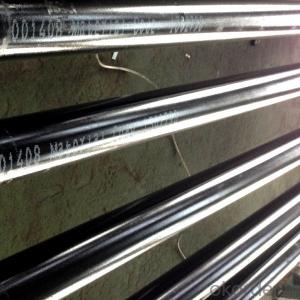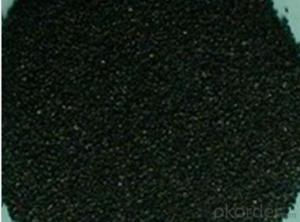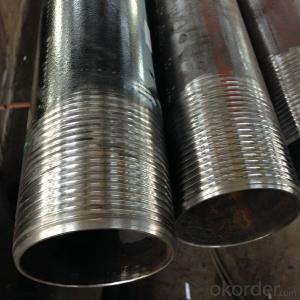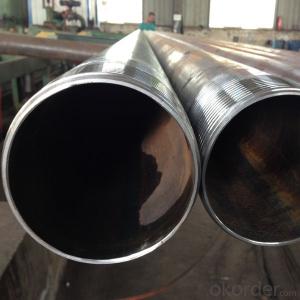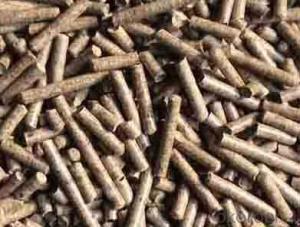Casing Seamless Oil Tubing 5' K55 12.14MM R3
- Loading Port:
- Tianjin
- Payment Terms:
- TT OR LC
- Min Order Qty:
- 50 m.t.
- Supply Capability:
- 10000 m.t./month
OKorder Service Pledge
OKorder Financial Service
You Might Also Like
Product Description:
Casing is a wide range pipe that serves as the structural retainer for the walls of oil and gas wells, or well bore
It is inserted into a well bore and cemented in place to protect both subsurface formations and the wellbore from collapsing, to allow drilling fluid to circulate, and extraction to take place
Steel casing pipes have smooth wall and minimum yield strength of 35,000psi
Scope of Application of the Goods
Tubing: tubing is pipe used for the transportation of crude oil and natural gas from an oil or gas layer to the surface after drilling is complete
It is made to withstand the pressure generated from the extraction process
Tubing is manufactured in the same way as casing, except that an additional process known as "upsetting" is applied to thicken the pipes
Main Product Features:
· Professional Service
· Competitive pricing
Measuring of wall thickness from the outside
Low purchase cost
Specifications:
Out diameter:
Casing: OD 4 1/2"- 20" (114.3mm-508mm)
Tubing: OD 2 3/8" - 4 1/2" (60.3mm-114.30mm)
Wall thickness: 0. 205"- 0.635"
Length: R1 (4.88mtr-7.62mtr), R2 (7.62mtr-10.36mtr), R3 (10.36mtr or longer)
Steel grade: H-40, J55, K-55, N-80, C-75, L-80, C-90, T-95, Q-125
Surface: corrosion proofing water based paint
End: beveled, square cut and pipe protection cap especially for casing and tubing
Heat treatment: normalized, quencher+temper
CasingSeamless 5” K55
ButtressRange 3
Od:127mm
Thickness:12.14mm
Length:R3(>10.36m)
SteelGrade: K55
Connect: Bc
Package
Standard export bundles or as customer's required
casing standard
Having the API-5CT official monogram
Inspection
we can find third party to inspect the goods.e.g SGS
Thread
LTC.STC.BTC
Delivery time
30-45days after the receipt of L/C
Usage
Oil & gas fields
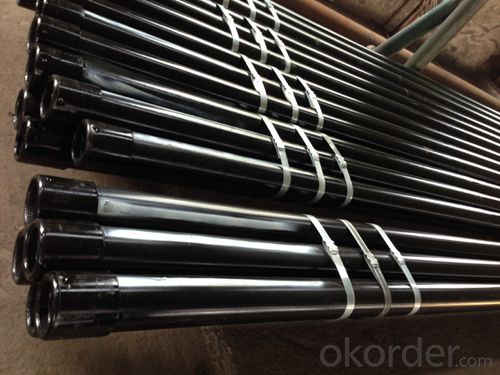
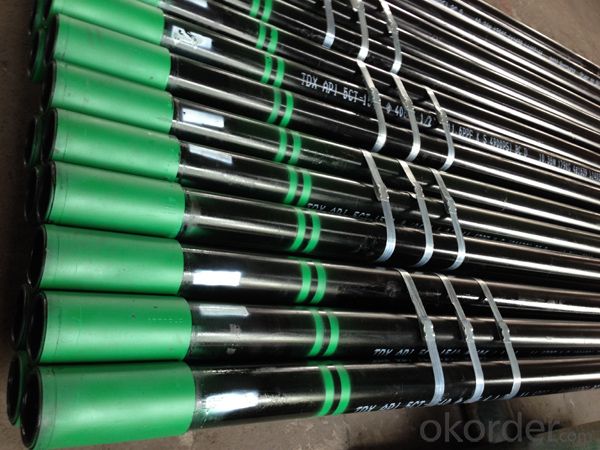
- Q: Metro energy feedback products which good?
- Then the annual cost savings of 4.86x350x365=620865 yuan. If you are interested in further understanding can be concerned about Sheng Hong electric WeChat public number in the above there are a lot of introduction of the article, you can also direct contact 0755-86511588, will be a detailed answer
- Q: What is a one-time energy
- Primary energy: refers to the natural form of the original form, the conversion of energy resources without processing. Natural energy.
- Q: New energy technology applications, including the professional
- New energy related to the following basic professional:1. Machinery, all kinds of mold, product development;2 HVAC (solar thermal power) heat pump system;3 Analysis and test of thermal analysis finite element analysis and the like;
- Q: What is terminal energy consumption
- 3 the energy used as a material refers to the use of some of the energy does not constitute a product of the entity only play a supporting role in the consumption of such as washing gasoline diesel oil kerosene lubricating oil used in various equipment4 process energy refers to the process in the production process is not used as raw materials, nor as a fuel, power use of the process of energy use, such as the production of calcium carbide power, electrolytic powerThe terminal energy consumption is equal to the energy consumption of terminal energy
- Q: State approved products called new energy foods
- The difference between new resource food and health food:1 health food refers to food with specific health functions, and approval must also be clear that what has a health care function, and the need for a health care function marked and defined on the product packaging, the new food resource has one or more functions are not on the product introduction mark in detail.2 new resources of food and health food for the application of the crowd is different, the former applies to any population, while the latter is suitable for specific populations.
- Q: What is the classification of energy?
- Classification of a wide range of energy, but also through the continuous development and research,
- Q: Can the total energy consumption (equal value) be calculated in terms of the sum of the equal value of electricity and other energy
- Equivalent value is a measure of the energy of the unit itself
- Q: Trademark registration of energy and environmental protection is the first category
- Article 02: paint, varnish, paint, rust and wood preservatives, colorants, mordant, raw natural resins, painters, decorators, printers and artists with metal foil and powderArticle 03: laundry bleach and other materials, cleaning, polishing, scouring and abrasive preparations, soap, spices, essential oils, cosmetics, shampoo, toothpaste
- Q: What is the energy consumption per unit product
- (2) the individual energy consumption per unit product output refers to the amount of a certain amount of energy consumed in the production of a particular product. The index reflects the quantitative relationship between inputs and outputs. (3) the energy consumption per unit of comparable products refers to the total energy consumption per unit product of the same product in accordance with the standard process or standard product output under the same production conditions. Index Interpretation: this indicator reflects the level of production technology, product quality and management level of various industries and enterprises. It is the main index to evaluate the economic benefit and energy saving plan of the enterprise, and it is the important basis to formulate and modify the energy consumption quota and the product cost accounting. The characteristics of this index is, in the same industry between the various business units energy consumption comparable to eliminate similar between enterprises, because the product structure, production process, supply and demand structure caused by the different energy consumption are not comparable to the effect.
- Q: What is the comprehensive calculation of energy production?
- Energy production [statistics] the statistics reflect energy production scale, energy production structure, main indicators of production results and development speed, for the preparation of energy production plan, check the energy production schedule, reasonable composition analysis by energy, provide an important basis for the rational development of energy. According to the origin of energy, it can be divided into primary energy output and two energy output.
Send your message to us
Casing Seamless Oil Tubing 5' K55 12.14MM R3
- Loading Port:
- Tianjin
- Payment Terms:
- TT OR LC
- Min Order Qty:
- 50 m.t.
- Supply Capability:
- 10000 m.t./month
OKorder Service Pledge
OKorder Financial Service
Similar products
Hot products
Hot Searches
Related keywords
